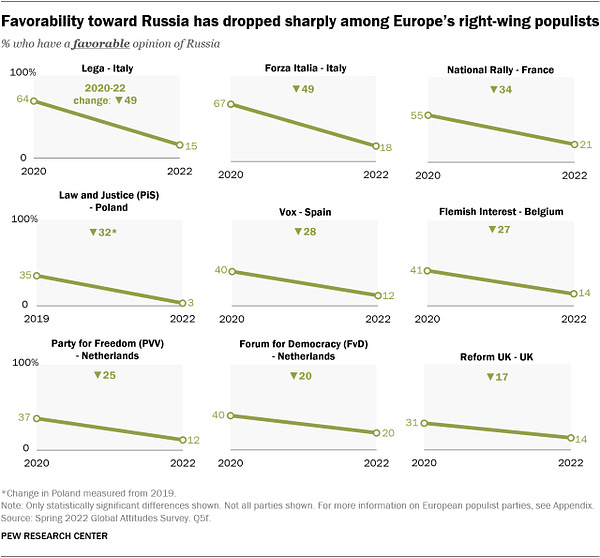Ever since populist nationalism triggered Brexit and Trump there has been an undercurrent of thought that illiberal states have a competitive advantage in world politics. Authoritarian states, for example, have become even more authoritarian, ostensibly rendering them less vulnerable to color revolutions or other political fissures. Meanwhile, liberal democracies seem besieged by spasms of populist outrage and the polarization of societies. These trends led some figures, like Hungary’s Viktor Orban, to explicitly embrace the illiberal model as superior.
Little wonder that Freedom House recently warned:
Around the world, the enemies of liberal democracy—a form of self-government in which human rights are recognized and every individual is entitled to equal treatment under law—are accelerating their attacks. Authoritarian regimes have become more effective at co-opting or circumventing the norms and institutions meant to support basic liberties, and at providing aid to others who wish to do the same.
While there may be reasons to doubt the democratic advantage in world politics, this remains a contested notion in international relations scholarship. So it seems worth noting that as of late illiberal autocracies have not acquitted themselves terribly well either. China seems unable to walk away from its disastrous zero-COVID policy. Iran is being pushed to the brink by the latest demonstrations. Russia appears to be committing acts of strategic suicide every day that ends with a “y.”
The hole card for illiberal states has ostensibly been their ability to sow division and influence public opinion in democracies that might oppose them. But it is worth noting that recent polling suggests that, populist or not, Western democracies have developed a pretty powerful consensus about opposing China and Russia.
Late last month the German Marshall Fund of the United States released the results of their 2022 Transatlantic Trends Survey. What was striking was the relative uniformity of transatlantic public opinion about both China and Russia. On China, the numbers for 2022 were similar 2021, which is bad news for China:
Negative views are strongest in Sweden (66%), Germany (65%), Canada (62%), the United Kingdom (61%), and the Netherlands and Portugal (both 61%). Likewise, negative perceptions prevail in France (58%), Spain (56%), and the United States (53%). Romania is the only country where almost half of the respondents see China’s influence as positive (49%)
As for Russia:
The public on both sides of the Atlantic is sharply critical of Russia’s influence in global affairs after its invasion of Ukraine. A cross-country average of 73% describe it as very or generally negative. This does not correlate with geographic proximity to Russia: the countries with the highest share of respondents seeing Russia’s influence as negative are Portugal (84%) and the Netherlands (81%), followed by Poland (80%), Sweden (78%), Lithuania (77%), the United Kingdom (77%), and Spain (74%). The comparatively least negative perceptions are held by respondents in Türkiye (66%), the United States (65%), Romania (64%), and Italy (62%).
These results are echoed in the Pew Research Center’s survey findings. On China, Pew’s latest survey results demonstrate a very clear trendline of rising hostility toward China:
In the U.S., the sense that China has handled COVID-19 poorly and is at fault for the virus’s spread certainly is related to negative opinions of the superpower, but is not the only factor driving attitudes. Rather, negative views of China were already rising prior to the pandemic. The same is true in other countries, including some of China’s neighbors, like South Korea, Japan and Australia….
Beyond these specific countries, unfavorable views are at or near their historic highs in many of the advanced economies we have surveyed since 2020. And, even in some emerging economies – which we have been unable to survey since 2019 due to the challenges of conducting face-to-face surveys during the pandemic – negative views of China were already commonplace three years ago. This is the case in countries like the Philippines, India and Turkey.
As for Russia, what is striking is the degree to which European right-wing populists — which have long demonstrated an affinity for Putin’s weird brand of shirtless nationalism — have soured on the country.


My point here is a simple one. Since 2016 there has been a lot of anxiety that democracies are vulnerable to influence operations from authoritarian rivals. Based on these polls, however, that anxiety seems overstated. As some folks start to reassess whether autocracies really do have an advantage in international relations, maybe they should stop selling democratic publics short.



I think it's also worth noting that for all its tendency toward authoritarianism, the rhetoric of right wing popularism echoes democratic values. That's one reason why Trump and his hacks, whores, & grifters have so much popular support.